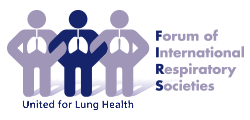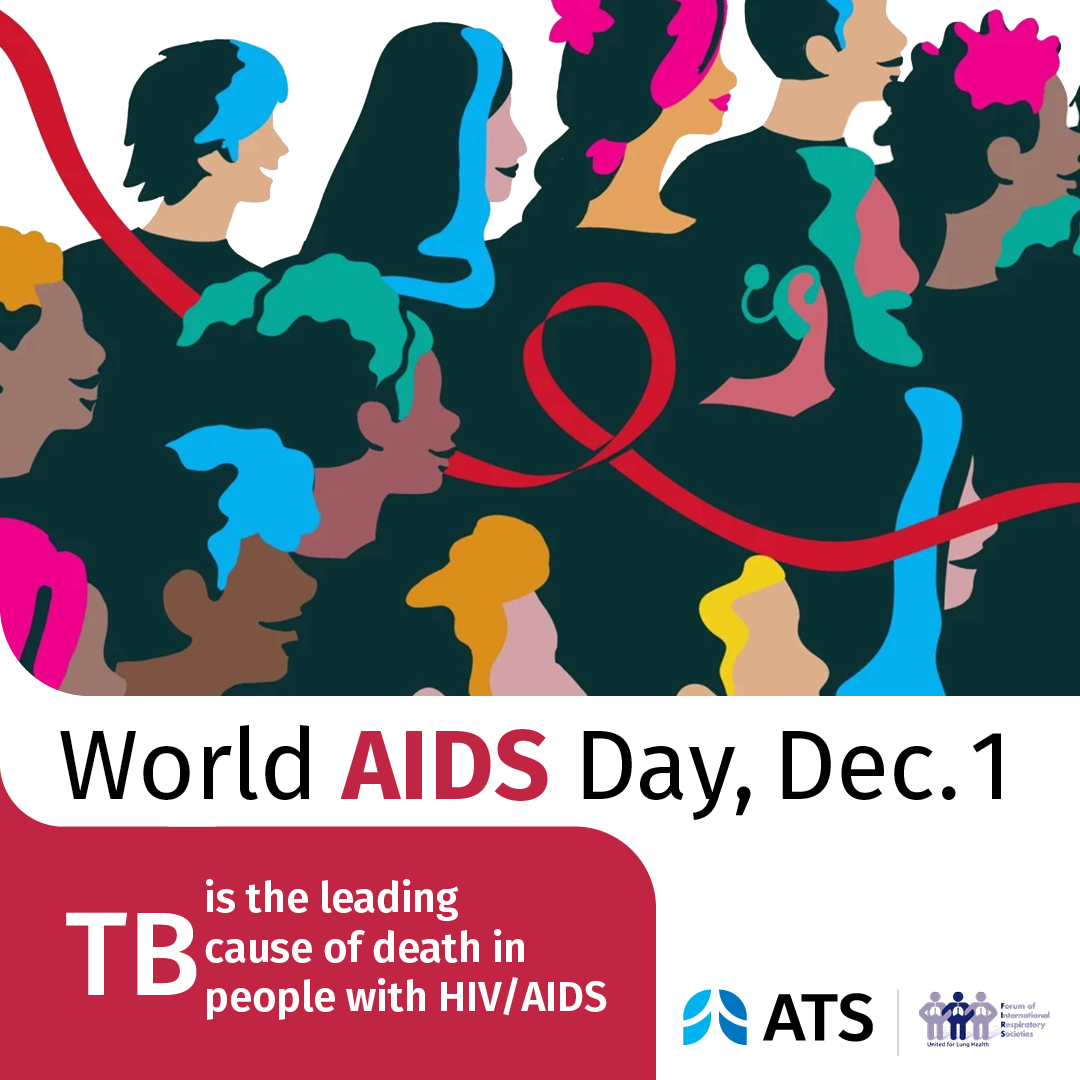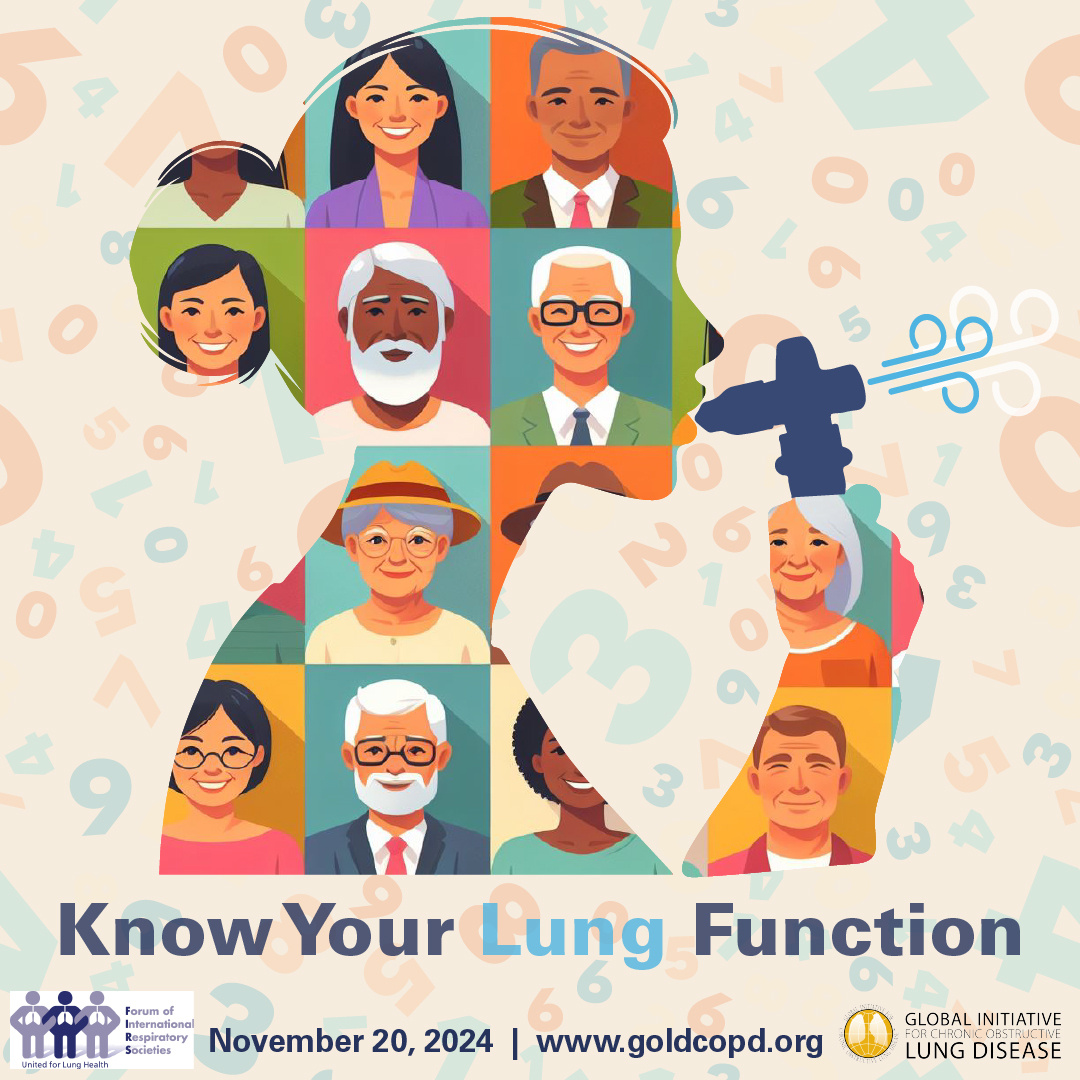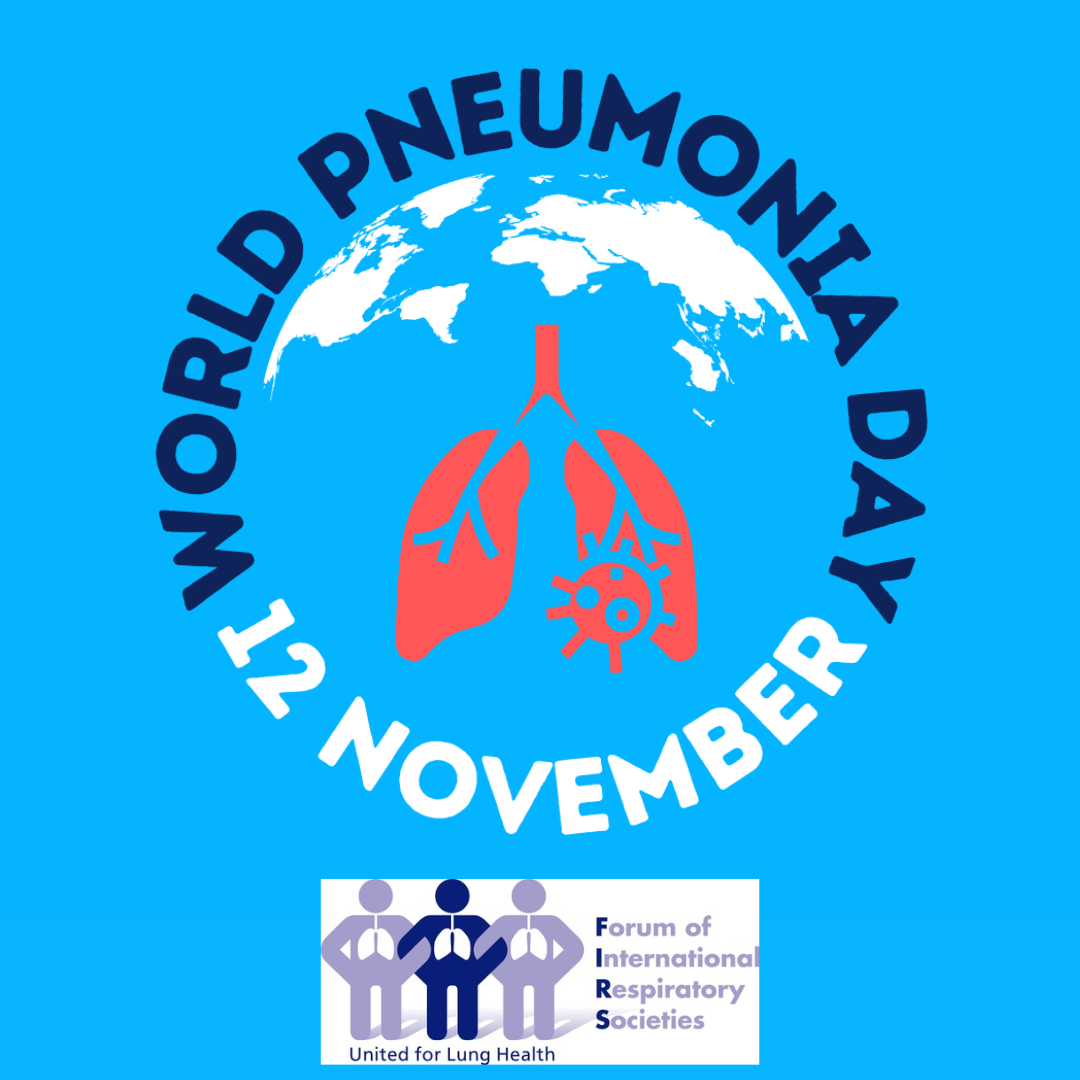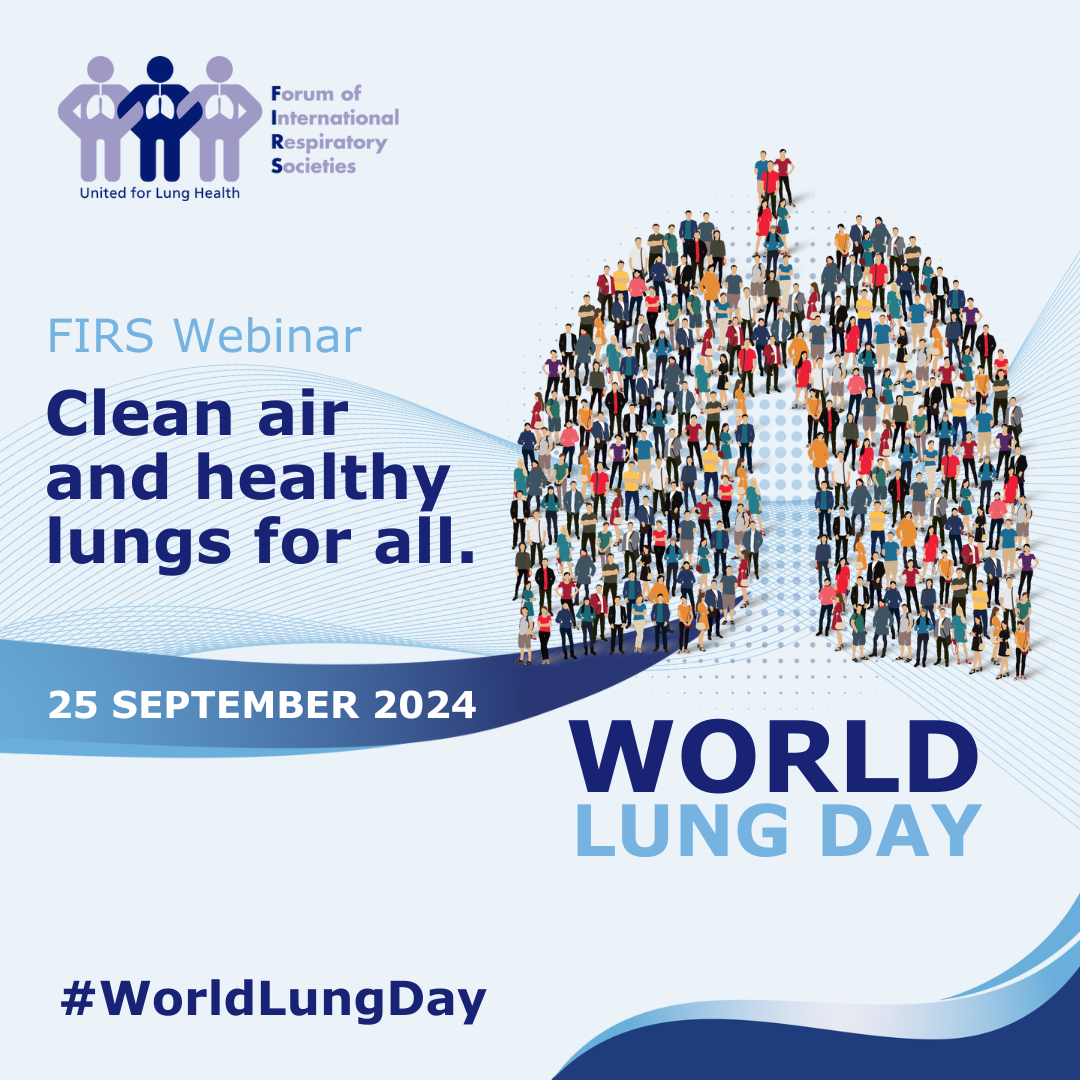Cape Town, Glenview, Lausanne, Montevideo, New York, Paris, Tokyo, March 24, 2017 – In support of World TB Day, 24 March, the Forum of International Respiratory Societies (FIRS) urges action on five united strategies to ensure the aim of ending tuberculosis (TB) by 2030 becomes achievable, despite new and emerging challenges.
TB is preventable and curable, yet it remains one of the world’s most pressing public health challenges and is one of the five* chronic conditions that most contribute to the global burden of respiratory diseases.
In 2015, there were 10.4 million new TB cases worldwide, and 1.8 million people died of TB. In the same year, 480,000 patients developed multidrug-resistant TB – now a recognised public health emergency and a statistic that is predicted to rise still further. TB remains an important preventable cause of childhood death and morbidity - in 2015, one million children developed TB while 210,000 children died of TB. TB is the leading killer of people with HIV - 35% of deaths among HIV-positive people are directly due to TB infection.
FIRS calls for immediate action on the following five points to accelerate progress in confronting TB and reduce the overall impact of respiratory illness on lung health.
- Financial investment to address the TB funding gap. During 2015, investment into TB care and prevention in low- and middle-income countries (LMICs) fell almost US$ 2 billion short of the US$ 8.3 billion needed in 2016. This gap will widen further by 2020 if current funding deficits are not addressed. With 60 percent of global TB cases occurring in just six countries (India, Indonesia, China, Nigeria, Pakistan and South Africa), investment and action in these areas would drive down the overall TB burden. It is therefore imperative that sustainable funding must not only be promised, but also delivered.
- Health systems fit for purpose. The World Health Organization’s ratification of a shortened treatment regimen for drug-resistant cases of TB – just nine months, instead of the 24-month treatment standard, offers the opportunity to relieve the burden on patients and health care systems – but only if LMICs are supported to develop health care structures that can implement the recommendations.
- Active case finding to address diagnostic and treatment gaps. Of the estimated 10.4 million new TB cases recorded in 2015, only 6.1 million were detected and notified. Without active case finding, the missing millions infected with TB will remain untreated and contribute to an increase in infection and MDR-TB cases. Failure to detect and provide preventive therapy to child contacts of adult cases is a major cause of childhood TB.
- Empower communities to develop and deliver people-centred solutions. Funding and staffing communities to enable them to make the decisions about the type of care that best suits them and their region, while drawing in the expertise of the wider public health community is fundamental to sustained TB prevention and cure. Governments worldwide must enable on-the-ground solutions to be prioritised and distribute funding to make them sustainable.
- A multinational, multisectoral approach. A commitment to TB elimination must be multisectoral, involving multiple government departments, sectors of society, and national and international organisations. This is crucial in order to target hard-to-reach, vulnerable populations within LMICs, especially with the counter-effects of migration and civil upheavals globally.
Progress in these five critical areas will significantly reduce the global TB burden and ensure that we take significant steps along the road to achieving the strategy to end TB by 2030.
Download the FIRS TB factsheet
# # #
For further details on FIRS and World TB Day 2017, contact:
Jo Waters
Communications Department
The International Union Against Tuberculosis and Lung Disease
This email address is being protected from spambots. You need JavaScript enabled to view it.
About the Forum of International Respiratory Societies (FIRS)
The Forum of International Respiratory Societies(FIRS) is an organisation comprised of the world's leading international respiratory societies working together to improve lung health globally: American Thoracic Society, American College of Chest Physicians, Asociación Latinoamericana De Tórax, Asian Pacific Society of Respirology, European Respiratory Society, International Union Against Tuberculosis and Lung Disease, and the Pan African Thoracic Society. The goal of FIRS is to unify and enhance efforts to improve lung health through the combined work of its more than 70,000 members globally.
